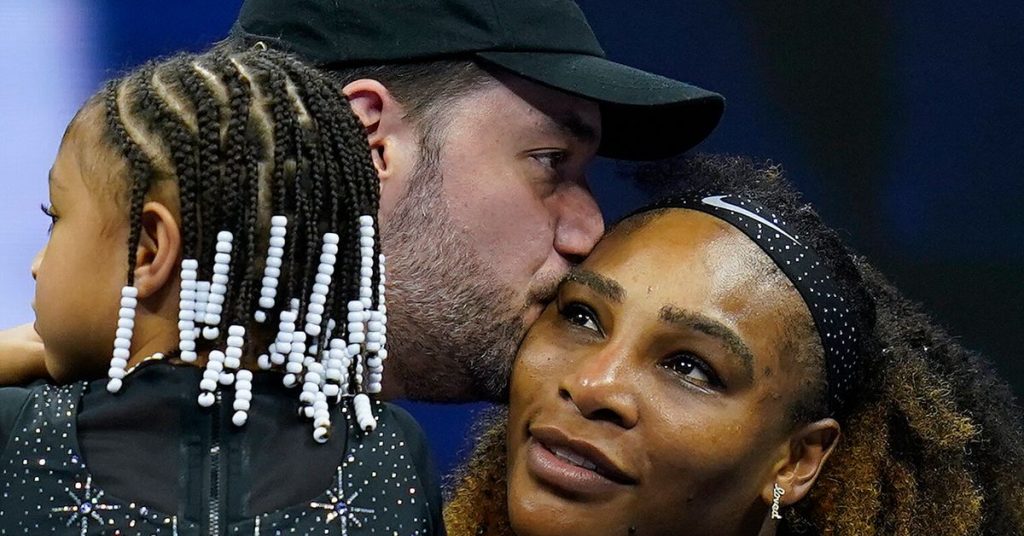The exchange between right-wing commentator Jason Whitlock and Reddit co-founder Alexis Ohanian highlights a broader cultural conversation about masculinity, relationships, and public criticism. Whitlock sparked the debate by labeling Ohanian a “beta” after the tech entrepreneur defended his wife, tennis legend Serena Williams, in response to Whitlock’s past criticisms of her. Ohanian’s strong rebuttal not only shut down Whitlock’s jabs but also shed light on the toxic stereotypes surrounding masculinity that have become prevalent in certain conservative circles, particularly within the MAGA movement.
At the heart of the controversy was Serena Williams’ recent Super Bowl halftime performance, where she danced during Kendrick Lamar’s groundbreaking set. Ohanian pointed out the significance of the moment, noting that Williams had faced harsh criticism for doing the same dance at Wimbledon in 2012. Whitlock, who had previously condemned her for the dance, accused Ohanian of being a “beta male” for defending his wife, suggesting that Ohanian should instead focus on her actions rather than standing up for her. Whitlock’s remarks were laced with personal jabs, including a reference to Williams’ rumored past relationship with rapper Drake, who has been the subject of Kendrick Lamar’s lyrical critiques. Whitlock’s choice of words reflects a narrative often used by conservative commentators to demean men they perceive as subordinate or overly invested in their relationships.
Ohanian’s response was swift and measured. He called out Whitlock’s life choices and implied that Whitlock’s Criticism stemmed from personal insecurities and unmet expectations. “You’re the embodiment of peaked in high school, spending decades chasing validation from strangers through Likes and Digital Hugs, only to find that no amount of external approval fills the void,” Ohanian wrote. He emphasized the importance of personal growth and humility, suggesting that Whitlock’s life had not turned out as he imagined, leaving him bitter and critical of others. Ohanian’s rebuttal not only defended his wife but also challenged the toxic ideas of masculinity that Whitlock and others in the MAGA movement often promote.
The term “beta male” has become a popular insult among conservatives, particularly in the MAGA movement, to describe men they perceive as weak or overly submissive. This label is often used to belittle men who embrace emotional intelligence, vulnerability, and supportive relationships. Licensed therapist Tatiana Rivera Cruz notes that “beta males” are typically seen as lacking dominance, a trait that some conservatives equate with traditional masculinity. However, this label can also be rooted in jealousy or flawed notions of romantic relationships. Men who criticize others as “beta” often do so out of insecurity or a belief that dominance is the only acceptable form of masculinity.
The broader implications of this exchange extend far beyond the personal feud between Whitlock and Ohanian. Serena Williams, a 23-time Grand Slam singles champion, has faced years of misogynoir—a term that describes the intersection of misogyny and racism directed at Black women. Her success on the tennis court has been met with criticism of her body, her demeanor, and even her personal life. Whitlock’s past comments about her dancing at Wimbledon reflect this pattern of scrutiny, as does his recent attempt to shame Ohanian for supporting his wife. Licensed marriage and family therapist Racine R. Henry points out that men who criticize others for being supportive partners often do so because they lack emotional intelligence and fail to recognize the value of loving, open relationships.
Ultimately, the feud between Whitlock and Ohanian underscores the importance of redefining traditional notions of masculinity. Henry emphasizes that being a loving and supportive partner is a strength, not a weakness. “Compassion, empathy, confidence, and humility” are key qualities for any healthy relationship, she says. By standing up for his wife and challenging Whitlock’s toxic ideas, Ohanian demonstrated a form of masculinity that prioritizes emotional expression and mutual respect over dominance and aggression. As society continues to grapple with evolving definitions of masculinity, moments like this remind us of the importance of empathy, vulnerability, and standing up against harmful stereotypes.









